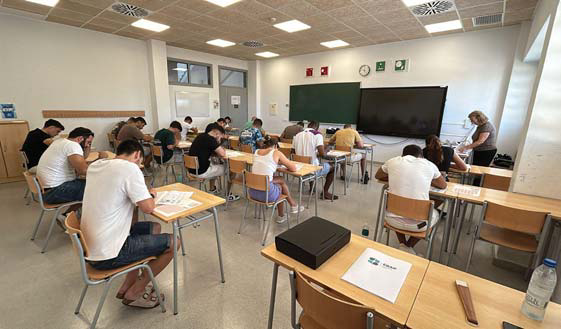WATER PROBLEMS AND SWIMMING POOLS Menorca has achieved the doubtful distinction of being the region in Spain with the largest number of swimming pools per head. There are 10.506 and they are increasing at a rate of nearly one per day. This is happening with a population of 100.000 and a coast line of 200 kilometres, which can be reached in a reasonably short time from the interior of the island. The up-to-date census has revealed that Sant Lluis is the leader in pools with one for every three residents. There are many areas with second homes, or properties that are rented out. Mahón, with few pools, is at the other end of the scale with one for every 20.4 inhabitants. The Balearics, with an average of 15.5 inhabitants for each pool, have the highest ranking in Spain, and Menorca leads the pack with 9.6 people per pool. Ibiza has 60.000 more inhabitants than Menorca and double the amount of visitors but their average is 14.2. In Mallorca it is 16.3 and Formentera 21.5. OBSAM, the socio- environmental observatory, comment that in urban areas the consumption of water per person per day is between 100 and 150 litres. In the urbanisations it can be 600 or 700 litres or even 900. David Carreras, the director, says that measures should be taken, he is not against swimming pools but suggests they should be covered to prevent evaporation and to minimise the need to refill them. Also, the use of water cisterns should be encouraged and limits should be set on the abusive use of water. Aquifers in Menorca were at 42% in June, the lowest for a decade.
THE ISLAND CAN ́T BE A FLOATING AIR BNB The central government in Madrid continues to meddle in Balearic matters. Under a new law, private boat owners can apply for authorisation to rent their boats out for three months a year. The boats must be properly insured against accidents and the renting managed by professionals in nautical rentals and these companies must apply for the temporary change of use. A professional skipper must take the boat out, not the owner. The Association for Menorcan Nautical Businesses (ASMEN) is worried about the decision (by the Ministry of Transport) and have complained to the local department in charge, stating that despite the safeguards the measure is liberalising the charter industry. The senator Cristóbal Marqués, in opposition in Madrid, accused the government of not taking into consideration the particular circumstances in the Balearics. The Govern in Palma has been quick to react, if boat owners wish to legalise a “nautical air bnb” they will not be allowed to moor on the islands. They go further; the official charter companies must have a local mooring before they can rent on the islands. There are over 20.000 moorings or buoys on the islands and 7000 on the waiting list. In order to have more control, Yacht Clubs have been asked to submit the exact use of the moorings in their territory. Marqués says it is incomprehensible that at a time when local authorities are trying to limit excessive tourism that the government in Madrid is passing laws without consulting local politicians. On 30th July, the PSIB (Socialist Party in the Balearics) announced that the islands would be exempt from the nautical Airbnb law next year. The law is still being drawn up, but places with a high “saturation” of tourists will be exempt - the PP is still suspicious at what appears to be a last minute decision. They say “we have seen these situations time and time again, if one party is in power in Madrid and another on the islands we always suffer - although they gladly take our taxes!”
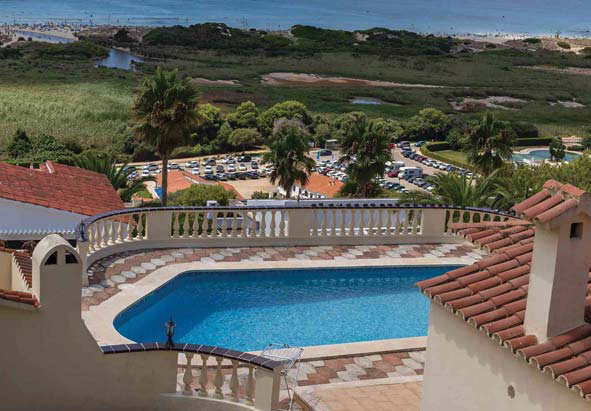
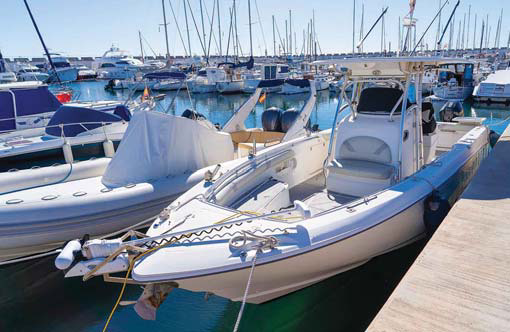
Now back to a subject we have frequently commented on, but it is worth mentioning because it never fails to surprise and any holiday makers who buy Roqueta need to be aware of the strict speed limits around Es Migjorn. Last year we commented on the huge amount that was being spent on postage to send out the fines and the fact that the Traffic Police were arguing with the Ayuntamiento as they feel the road is under their jurisdiction. Now it has emerged that the Ayuntamiento has paid 32.000 Euros since 2023, in various bills, to Alumbrados Varios SA who organised the Radar system. This year alone there have already been 6000 fines, and the Ayuntamiento pays 59% to the company, amounting to nearly 700.000 Euros.
GOLD MEDALS FOR MENORCA IN ORKNEY Bià Pons Triay triumphed in athletics with the first gold medal for Menorca in the Orkney Island Games; another gold went to Jaume Bosch Picò, in the triple jump, and a third to Aaron Genestar Sánchez in cycling. The Ayuntamiento in Alaior, congratulated David Sintes Pons on his silver in cycling, but possibly used AI as they confused Orkney with a brand of reading glasses called Oakley, and Scotland (Escocia in Spanish) with Iceland (Islandia), later this was corrected.
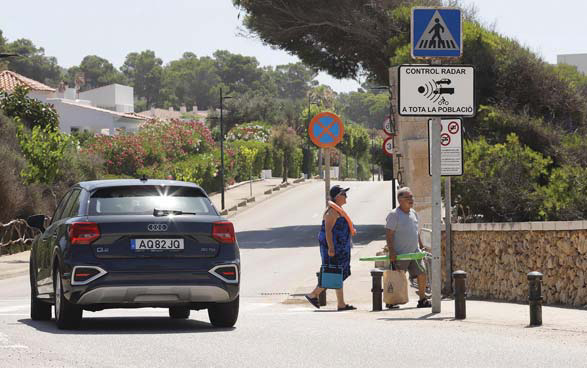
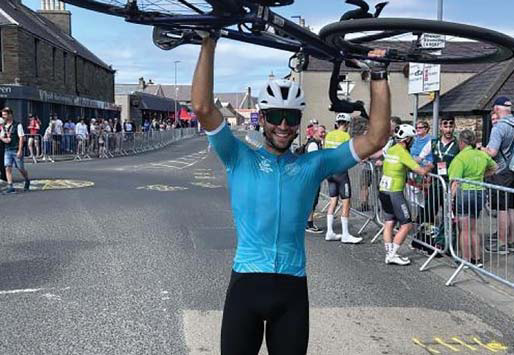
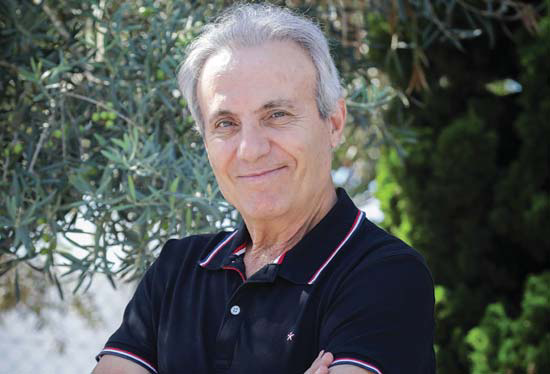
SA PERDIU TO REOPEN Bucking the trend to close local businesses are three young men from Ferreries, all born in 2000, who are to reopen the emblematic Sa Perdiu bar in Ferreries. David Febrer, Jordi Moll and Mauricio Miranda the “ferreriencs” have been friends since childhood and were working against the clock to reopen the bar in time for the local fiestas on 24th August. The Meliá hotel chain originally had planned to buy the building for their hotel staff from Cala Galdana and Santo Tomás, but changed their minds. The bar is being remodelled but will still be a bar, emphasise the boys. Over time, they intend to recoup the dance hall at the back and the rooms in the hostel in the two floors above. The idea was to raise money to buy the building and the three have the backing of Menorca Maravilla in Ferreries, a rental company, and American Investors. They have all worked in hotels, but have never run a business. Other emblematic businesses for sale are La Palmera and el Bar Peri in Es Migjorn, both family businesses where the next generation will not take over.
TRADITIONAL BUSINESSES DISAPPEARING
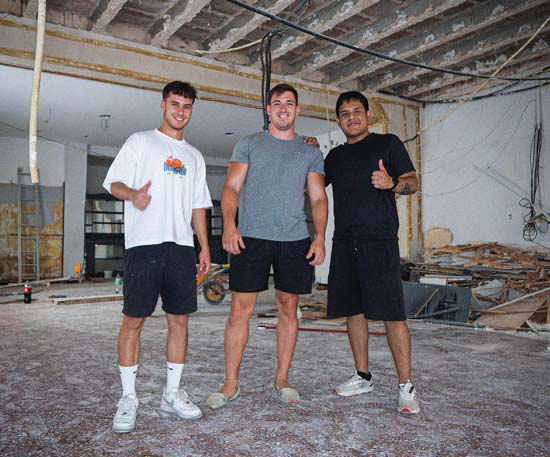
Many historic shops and businesses are disappearing in Menorca in these days of franchises and online sales. Antoni Riera from Ibiza has written a book about historic businesses in the Balearic Islands. He has described 21 in his book on Menorca and considers “historic” shops or businesses rooted in traditional products with 75 years behind them and that are still in business. He says generally on the islands these are bakeries and confectioners, followed by leather goods, hardware shops, handmade goods, drinks, food, jewellery and others. One important factor for family-run businesses is that they don ́t have to pay the huge rents that newer businesses do, often owning the premises or having a low rent. Riera says they are disappearing rapidly all over Spain and he believes that a Gastronomic Heritage should be introduced, with real help for artisan products; often the market is saturated with cheaper products. He says they should be protected like the archaeological sites. Restaurants are suffering too. The traditional “Menu del Día” so popular with residents and visitors is no longer so economical. Staff costs have risen, it is also difficult to find staff, they in turn find it difficult to find accommodation. General running costs and food prices have also risen.

HOTEL AT LLUCALARÍ WITH ILLEGAL WELL And still on the subject of the lack of water in Menorca, the Guardía Civil have denounced the Hotel Cap Menorca, part of the French group Mare e Terra, for using an illegal well and extracting 40.000 litres of water on a daily basis. The intervention by police was part of “Operation Zahuri” which checks the uncontrolled use of water in the countryside and has yet again focused on the tourist sector. The Rural Hotel is situated in the old military buildings at Llucalarí and opened its doors after a decade of paperwork and substantial changes to the original plans. The Hotel has 16 swimming pools, a very large one, and 15 individual ones for the suites. The revision of the Island Territorial Plan (PTI) in 2023, limited rural hotels to one per farm with a maximum dimension of 35 sq. mts. and a capacity of 60 cubic mts. In this case, planning permission was granted specifically for swimming pools. There have been some other cases, also in the municipality of Alaior. Torre Vella managed to legalise seven ”swimming pools” where planning permission was granted for “aljibes” or water cisterns. This saved the owners a 1.5 million Euro fine. Menorca Experimental, an agricultural tourism hotel on the Sant Llorenç farm, installed nine pools when they only had permission for one. The well at the centre of the controversy is an old one and the hotel had not asked for permission to use it. They are also using the one that is legal for human consumption to fill the pools, according to the Guardía Civil. The company say that they use the older well for watering plants and gardens; it has a depth of 82 metres and was built for the military installations between 1929 and 1930 and was used until 2007 for drinking water for 300 army personnel stationed there. Things could change again as plans for the new PTI intend to “soften” the policy regarding pools on rustic land.
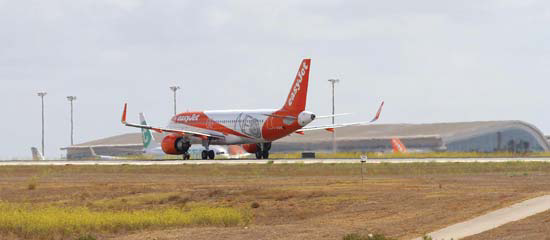
UNEXPECTED FLIGHT TO MILAN A 15-year-old British boy with autism managed to board a flight to Milan on 4th August. The Easyjet flight left promptly at 9.29 a.m. while the family were waiting for their TUI flight to Stansted. The parents raised the alarm when they realised their son was missing and the National Police checked security cameras and realised what had happened. Easyjet were obliged to return the boy to Menorca or to England; he was met by security officers and airline staff at Milan. Now Easyjet and the Airport in Menorca are investigating how the incident could have occurred. It was only during the flight that they realised they had the minor on board.
TAXI DRIVERS FINED Two taxi drivers who work temporarily during the summer season in Mahón have been fined for not having a driving licence. The first had lost his licence after a sanction, which had finished, but he had not undertaken the obligatory course before he could apply for a new one. The other one ́s licence had expired, and he had not renewed it. They were stopped from working and have also been fined. Another local police inspection sanctioned 20 drivers out of 26. Six were fined for lack of cleanliness, both on the part of the driver and in the taxi. Five had publicity on parts of the vehicle that were not permitted, and one had the spare wheel in the boot, which is not allowed. Fines range between 100 and 1.500 Euros and serious infractions could mean the loss of the taxi licence or the municipal driving licence.
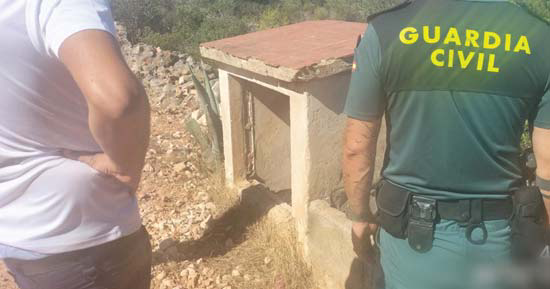
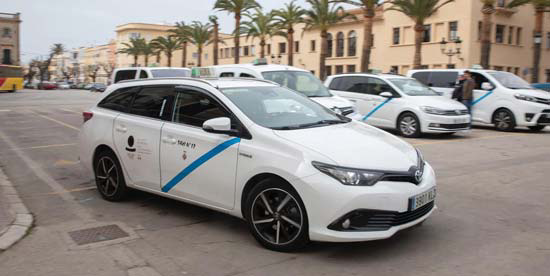
13 OWLS FLY TO FREEDOM In August, the Wild Animal Recovery Centre of Ciutadella released 13 owls from the top of Monte Toro. Every year fledgling birds fall from their nests and are rescued by GOB, the ecological society. They are taken to their animal sanctuary where workers and volunteers look after the baby owls (mussols – Scops owl in English) until they are released. At the event, the Centre publicly expressed their gratitude to the citizen collaboration and to all the volunteers who have dedicated their time to feeding these animals, as well as to the technical staff of the Consortium for the Protection of the Fauna of the Balearic Islands (COFIB). The bird species most needing help are: the common sparrow, the jays and the owls, without forgetting the greenfinch, the goldfinch, the black thrush, and the shrike. This year, 25 owl chicks were taken to the centre and 13 of these were released together at El Toro.
BALADA INHERITANCE The Infanta Sofía turned 18 on 29th April. She is the youngest granddaughter of the emeritus King Juan Carlos. Juan Balada, a business man from Menorca, left his inheritance to the grandchildren of Juan Carlos Ist and now they are all adults it can be sorted out. This affects a grand town house in Ciutadella, that is deteriorating, and the ayuntamiento would like to take over ownership. It is expected that the royal grand children will reject the inheritance, King Felipe’s girls certainly will. However, he can ́t control his nephews and nieces. He has said the relevant advisors are trying to solve the problem rapidly.
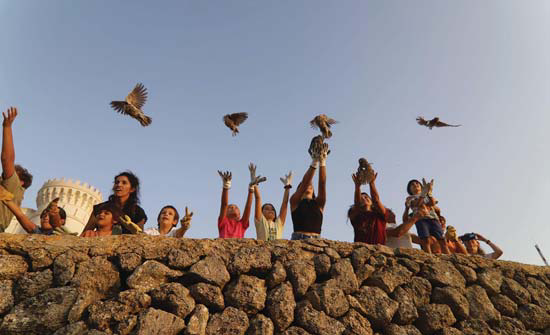
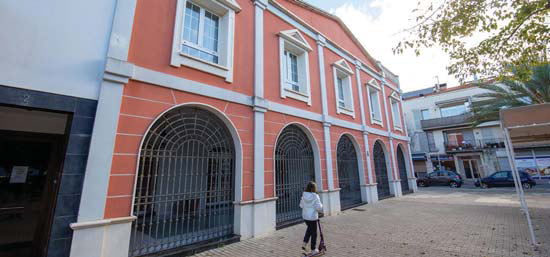
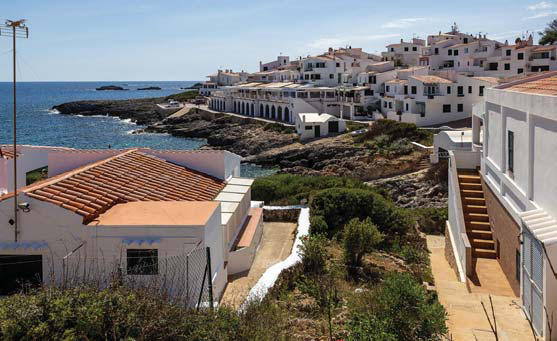

CONSELL RECEIVES 65.000 EUROS FOR TOURIST LICENCES Still on tourism, the Consell has “resold” the tourist places that they had recouped from properties that had never been rented or had not been rented out for the last three years. The licences went on the market on 31st July, and out of the 32 available, 26 have been sold. Not all the applications were granted as some didn ́t comply with the conditions required, although they can appeal. Now there is a moratorium on new tourist places until 2026 when the island councils will approve their actual capacity as part of the new Island Territorial Plan (PTI). These temporary licences are a way of keeping up the number of places and banking money which by law should be spent on improvements in the tourist sector. The Consell in Menorca asked the Govern if the money can be used for housing problems, which was agreed. In this way, tourism can help residents who have problems in getting on the housing ladder.
CONTROVERSIAL EXAM FOR LOCAL POLICE Changes to the pyschotechnical test that candidates for the local police have to answer has led to protests as many of them have failed, often having achieved excellent results in other exams. A total of 90 students from the islands have united to make a formal complaint. The questions were prepared by an external company and cost 60.000 Euros, a considerable rise from the 3.719 Euros that they cost last year. The questions were very ambiguous and could only be answered with true or false; one question that many failed was “I would contradict my superior when I was sure that I was in the right”. The answer required would be not to contradict; many students thought that maybe the senior officer was incapacitated or didn ́t have up-to-date information. There are 17 vacancies in the local police, 12 in Mahón and 5 in Ciutadella and there were 18 applicants; 8 failed the test. Most of the students had studied at the Reisan Academy which specialises in preparing for the exam in the Balearics. There are similar protests from firemen taking the physiological test organised by the Generalitat, the government in Barcelona. 45% of them have been eliminated with true or false questions such as “I have never tried alcohol” or “I have an inappropriate laugh”. We need police officers and firemen, obviously they must have stable characters, but how do you assess people psychologically? Questions referring to dangerous situations requiring written answers would seem sensible, but maybe more difficult to mark.
